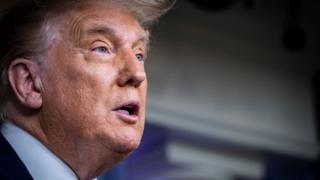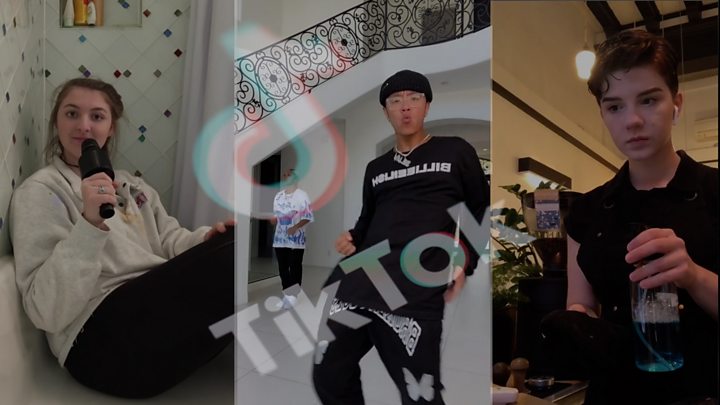TikTok calls Trump ban ‘political’ in lawsuit
 Image copyright Getty Images
Image copyright Getty Images Chinese video-sharing app TikTok has gone to court to challenge a ban imposed by US President Donald Trump.
President Trump’s executive order prohibits transactions with TikTok’s owner ByteDance from mid-September.
Officials in Washington are concerned that the firm could pass American users’ data to the Chinese government, something ByteDance has denied doing.
Tiktok said the Trump administration’s move was motivated by politics, not national security.
The popular social media app currently has more than 80 million users in the US.
In its lawsuit, Tiktok said it had taken «extraordinary» steps to safeguard US data in response to Washington’s concerns and argued that the order is a misuse of national security law.
The order «is not based on a bona fide national emergency and authorises the prohibition of activities that have not been found to pose ‘an unusual and extraordinary threat’,» the firm said in the complaint, parts of which were shared on its website ahead of Monday’s filing.

Media playback is unsupported on your device
Mr Trump has said TikTok can continue to operate, if China’s ByteDance sells it to a US company. He has also demanded that the government receive a cut from the transaction.
«The president’s demands for payments have no relationship to any conceivable national security concern and serve only to underscore that defendants failed to provide plaintiffs with the due process required by law,» the firm said.
Tiktok added in the filing in federal court in California: «The president’s actions clearly reflect a political decision to campaign on an anti-China platform.»
A TikTok spokesman declined to comment on the status of sale talks, saying the lawsuit was a «parallel» process.
On Friday, a group of Chinese-Americans filed a separate lawsuit against the president’s similar ban on the social media app WeChat, which is owned by Chinese tech giant Tencent.
TikTok’s users post short video clips on the platform on topics ranging from dance routines to international politics.
Its popularity exploded in recent months – particularly with teenagers – and it has been downloaded more than a billion times around the world.
But President Trump claims China is able to use the app to track the locations of federal employees, collect information for use in blackmail, or spy on companies.
The growth of mobile apps developed and owned by Chinese firms «threatens the national security, foreign policy, and economy of the US», said President Trump.
«This data collection threatens to allow the Chinese Communist Party access to Americans’ personal and proprietary information,» he claims in his executive order.
President Trump’s actions against TikTok and WeChat are the latest in a growing campaign against China ahead of the US presidential election in November.
Since taking office, he has been waging a trade war against China.
The US is not the only country to introduce blocks on TikTok. India has banned use of the app, and Australia is also considering taking action.
The app is viewed by some as being a key instrument in China’s internal surveillance apparatus – requiring local users who have been accused of spreading malicious rumours to register a facial scan and voice print.
